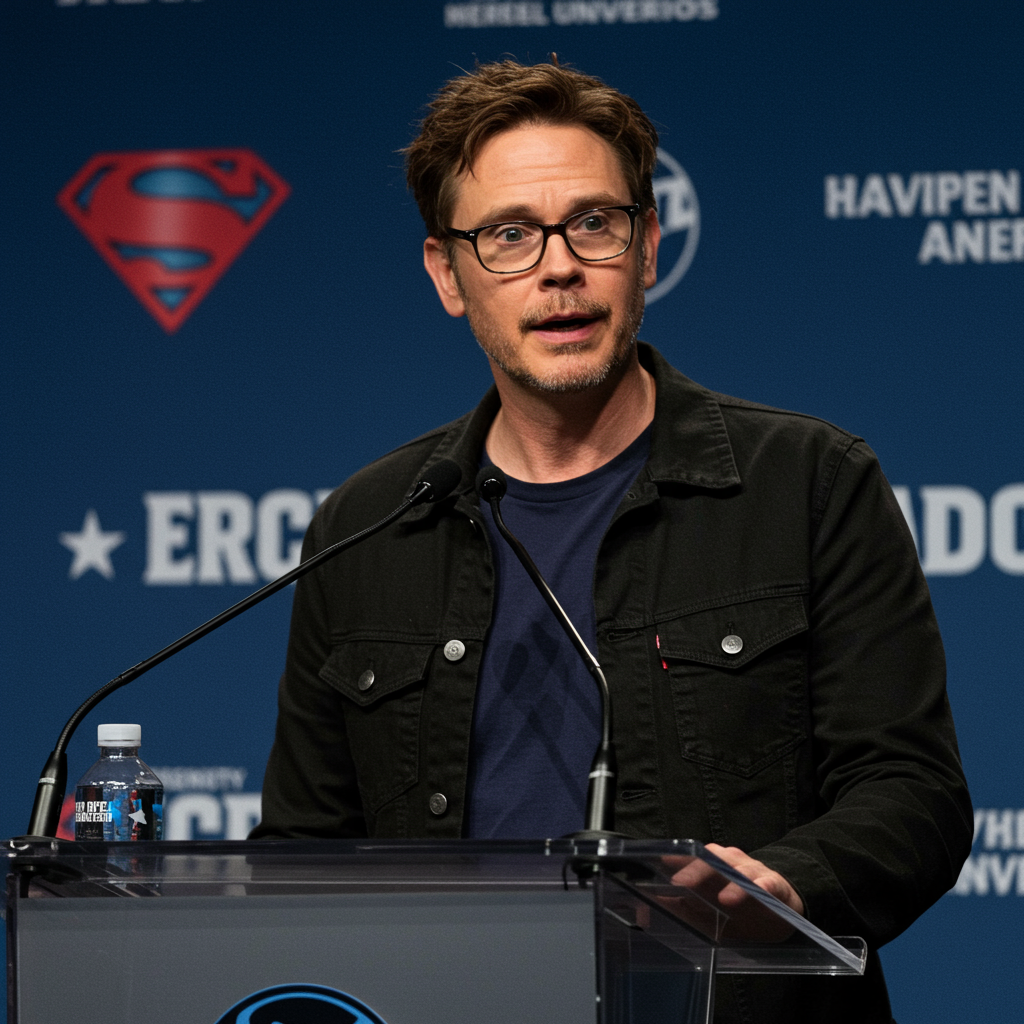Superman’s origin is one of fiction’s most enduring tales. It began simply in 1938: a doomed planet, a desperate escape, an infant sent to safety on Earth. This foundational myth, echoing archetypes as old as Moses, has captivated audiences for decades. Yet, in James Gunn’s highly anticipated Superman film for the new DC Universe, this classic story receives a significant, potentially controversial twist. The familiar narrative, where Kryptonian parents Jor-El and Lara Lor-Van send their son Kal-El to Earth solely for survival, is fundamentally altered. This departure raises a key question: does this bold change ultimately serve the iconic hero and the burgeoning DCU?
The film initially presents a version of events that feels reassuringly traditional. We see Clark Kent’s deep affection for his adoptive parents, Ma and Pa Kent, who shape his moral compass with kindness and Midwestern values. Clark looks to his biological parents, Jor-El and Lara, for inspiration, believing a fragmented message sent with him contains loving guidance that drives his protective ethos toward his adopted home. However, this belief shatters dramatically. The full transmission is revealed after the Engineer hacks the Fortress of Solitude’s system. Lex Luthor then publicly exposes the complete message, painting a dark picture. Jor-El and Lara didn’t just seek safety for their son; they saw humans as weak. Their hidden, true motive was for Kal-El to conquer Earth, spread Kryptonian heritage by breeding with human women, and rule with an “iron fist” as the “Last Son of Krypton.”
Why James Gunn Altered Superman’s Iconic Beginning
Director James Gunn explained this radical departure stemmed from his deep personal connection to the character. He emphasized the balance required. “I had to trust myself that I was going to honor the pieces of Superman that we needed to keep the same,” Gunn told IGN, “and also allow myself to make changes where changes might work and wouldn’t go against the integrity of who the character is.”
DC Studios co-chair Peter Safran strongly supported this vision from the start. He noted the dark intent was in Gunn’s earliest script drafts. Safran stated he “never questioned it,” finding the change “incredibly effective.” He highlighted the theme it powerfully reinforces: “family is about bond, not necessarily about blood.” This twist solidifies that Clark’s real family is the Kents. They are the ones who ground him and support him when he needs them most.
This isn’t merely a dramatic plot point. It’s fundamental to Clark’s journey in the film. The revelation forces a profound crisis of conscience. He must grapple with the potentially nefarious intentions of his biological heritage. This challenge showcases his humanity, vulnerability, and even fear. More importantly, it underscores a central theme: identity is defined by choices, not destiny or origin. Clark actively chooses to embody the kindness, openness, and heroism instilled by Ma and Pa Kent, rejecting the dark path his biological parents intended.
Precedent: Has Superman’s Origin Been Darkened Before?
While Gunn’s specific twist might feel like a massive swing, it’s not entirely unprecedented in Superman’s nearly 90-year history. The idea of Kryptonian influence being less than purely benevolent has been explored before in various media.
One notable example appears in the popular television series Smallville. Early on, an AI representation of Jor-El within the Fortress of Solitude acted as a harsh, demanding figure. This version explicitly instructed Clark to “rule them with strength” because humans were a “flawed race.” The language and intent are strikingly similar to the corrupted message revealed in Gunn’s film, predating it by two decades.
The comics have also ventured into this territory. During the Rebirth era, Jor-El was resurrected as Mr. Oz. This version escaped Krypton but became bitter and violent after witnessing humanity’s horrors on Earth, eventually seeking to destroy the planet. The Syfy series Krypton also toyed with the idea that the El family shared some blame for Krypton’s destruction, just like the Zods. More recently, the Max animated series My Adventures With Superman depicted Jor-El as a potential conqueror who planned to use Kal-El and Supergirl in his schemes. These examples demonstrate that while the Superman film presents a bold version, the concept of less-than-perfect Kryptonian parents has roots in previous canon.
How the Twist Strengthens the New DCU
The alteration to Superman’s origin serves multiple purposes within the framework of James Gunn’s new DCU. It immediately establishes thematic depth for the franchise. It positions Superman as a hero who actively chooses his path, rather than fulfilling a genetic or inherited mission. This highlights his agency and makes his heroism more meaningful.
Gunn has described his take on Superman as the “edgiest and most punk” superhero. This isn’t because he’s grim or gritty. It’s precisely because he chooses hope, kindness, and compassion in a world that might label such values as “cringe” or naive. The origin twist reinforces this. His decision to be a hero is a conscious rebellion against his genetic legacy. The film beautifully illustrates this by showing Clark finding solace not in Kryptonian holograms, but in home videos of Christmas and summer vacations spent with the Kents. His chosen family and upbringing define him.
The twist also sets up intriguing contrasts with other characters introduced in the film. For instance, the Engineer is enhanced by Lex Luthor but chooses to hunt rather than heal. Ultraman, a clone created by Lex, simply follows his destructive programming. In contrast, Mr. Terrific, initially detached, chooses to help Lois Lane save Superman at great personal risk. These characters highlight the power of personal choice, a theme illuminated by Clark’s own defiance of his biological heritage.
Furthermore, introducing this darker Kryptonian intent creates potential conflict for future stories. The film ends by introducing Kara Zor-El, Supergirl. Historically, other Kryptonian survivors appear. If some survivors still believe in the original conquest mission revealed by Jor-El and Lara, Clark’s choice to defend Earth rather than rule it becomes a point of contention, adding layers to the burgeoning DC Universe narrative.
Frequently Asked Questions
What is the main twist in James Gunn’s Superman movie origin story?
The primary twist is that Superman’s biological parents, Jor-El and Lara Lor-Van, did not send their infant son Kal-El to Earth simply for safety as their planet died. Instead, their hidden motive was for him to use his powers to conquer Earth, viewing humans as weak, and rule with an “iron fist” to spread Kryptonian influence.
Why did James Gunn change Superman’s origin for the new DCU?
Director James Gunn explained that the change was made while trusting himself to honor the core of the character. He wanted to make alterations that worked for the new DC Universe without sacrificing Superman’s integrity. The twist also emphasizes a key theme: that family is defined by bond, not blood, reinforcing the importance of Clark’s upbringing by the Kents.
Has Superman’s origin been changed or explored differently before?
Yes, various adaptations have explored darker or more complex versions of Superman’s Kryptonian origins. Examples include Smallville‘s AI Jor-El guiding Clark to rule humans, the Rebirth comics’ bitter Mr. Oz who wanted to destroy Earth, the Krypton series suggesting the Els were partly responsible for Krypton’s fall, and the My Adventures With Superman animated series portraying Jor-El as a potential conqueror.
Conclusion: A Hero Defined by Choice
James Gunn’s decision to alter Superman’s origin story is undoubtedly a bold move, especially as the foundation of a new cinematic universe. However, based on the film’s approach, this risk appears calculated and effective. It transforms a passive act of survival into an active rejection of inherited destiny. By giving Clark Kent’s biological parents a darker motive, the film deepens the character’s internal conflict and elevates the importance of his choices and the values instilled by Ma and Pa Kent. This Superman isn’t just a powerful alien; he’s a hero forged by nurture, actively choosing hope and kindness in a cynical world. The twist doesn’t diminish the Man of Steel; it makes him fundamentally human in the most meaningful way, positioning him as the hopeful heart needed for the new DCU.


